The Catcher in the Rye SummaryJ. D. Salinger's work, The Catcher in the Rye, was initially serialized in 1945-46 before being novelized in 1951. Originally written for adults, it is popular among teenagers because of its themes of misery and isolation and a critique of society's superficiality. Furthermore, the novel explores complex issues such as innocence, identity, belonging, loss, connection, sex, and sorrow. Holden Caulfield, the main character, has become a symbol of adolescent rebellion. Caulfield, entering middle age, discusses his ideas on various topics while describing his previous life events. The Catcher has been translated into several languages. Around one million copies are sold yearly, totaling more than 65 million books sold. Time named the novel one of the 100 best English-language novels written since 1923, and Modern Library and its readers picked it as one of the 100 best English-language novels of the twentieth century. In 2003, it came in 15th place in the BBC's "The Big Read" poll. SummaryHolden Caulfield, writing from a nursing home recovering from a mysterious illness, says he will recount what occurred to him shortly before Christmas the previous year. Holden's narrative begins at his high school, Pencey Prep, on the day of an annual football game that all students are expected to attend. Instead of going to the game, Holden, who was just expelled for failing four of his five classes, pays a visit to his elderly history instructor, Mr. Spencer. Mr. Spencer lectures Holden by agreeing with what the headmaster, Dr. Thurmer, has previously informed him: life is a game that must be played according to the rules. Spencer emphasizes the need to internalize this as Holden prepares for his future. As he listens, Holden pretends to concur with Mr. Spencer; however, he imagines that his educator is a "phony." As the discussion proceeds, Mr. Spencer drives him to peruse out loud an unsuitable exposition he expounded on the Old Egyptians, and this causes Holden to hate him since he realizes that he didn't invest sufficient energy into the task. Thusly, he lies and says he needs to pass on to gather his things; however, he returns to his apartment to peruse. 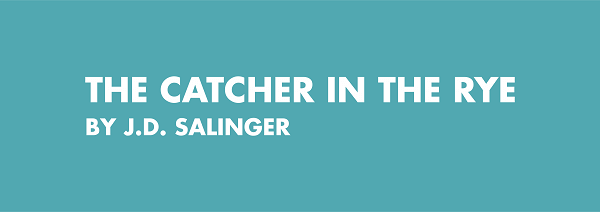
Holden returns to his room to find his annoying neighbor, Ackley, interrupting him as he attempts to read. Ward Stradlater, his pompous and attractive roommate, enters the room later. When Holden inquires why he has returned from the football game so early, he admits he is on a date with Jane Gallagher. This surprises Holden since he knows Jane Gallagher?he spent time with her two years ago when his family spent the summer in Maine. Holden goes on and on about Jane while Stradlater prepares for his date, revealing little facts about her nature. As he talks, he's very joined to his recollections of Jane; however, Stradlater often thinks about whether he can engage in sexual relations with her. This alarms Holden, yet he says nothing and even consents to do Stradlater's English schoolwork for him while he's gone. The task is to compose a short, clear article, so Holden expounds on his dead sibling Allie's baseball mitt. Hours after the fact, Stradlater gets back from his date. Holden has been tense since he left, considering how Stradlater was doing Jane. Rather than responding to Holden's inquiries concerning the date, however, Stradlater peruses what Holden has composed and condemns him for not keeping the guidelines, professing to have let him know that the exposition must be about a spot or a house. Annoyed and furious, Holden grabs the structure and destroys it. At that point, he presses Stradlater for insights concerning his date with Jane. This strained discussion makes him considerably angrier, so he punches Stradlater and calls him a moron. Since he's greater, however, Stradlater rapidly defeats him, yet this doesn't prevent Holden from considering him a "moron," inciting Stradlater to thump him unequivocally to the ground. Holden resolves to leave Pencey early following his fight with Stradlater, intending to stay in New York City until his parents receive word that he has been expelled since he does not want to be home when they find out. As he gathers his belongings, he turns to leave the dorm building and says, "Sleep tight, ya morons!" He then boards a train to New York, flirts with a middle-aged woman on the way, and books a room at the Edmont Hotel when he arrives. Soon after, he begins to act weirdly because he is lonely and miserable. Going down the stairs to the inn's club, he hits the dance floor with a lady named Bernice Krebs, who is uninterested in him rather than needs to invest energy with her two companions. In any case, Holden is unfazed, enjoying how great of an artist she is. Nonetheless, he long tires of Bernice and her companions since he believes they're "phony," so he takes a taxi to a piano bar he used to visit with his more established sibling, D.B. On his way, he wears a red hunting cap he has of late purchased and asks the taxi driver what befalls the ducks in the Focal Park tidal pond throughout the colder time of year; however, the driver educates him that he ought to mind seriously concerning the fish since they need to remain in the frozen water. No different either way, the driver demands that nature deals with the fish, asking Holden not to stress over things like this. 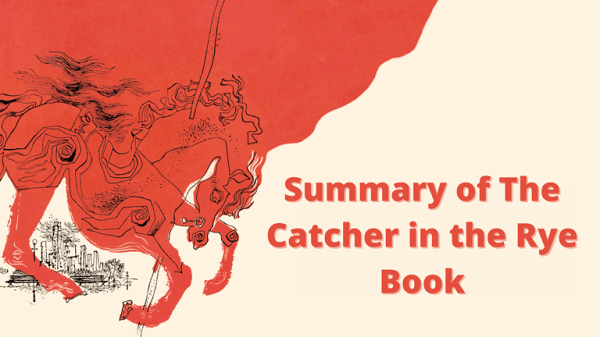
After a boring evening at the piano bar, Holden returns to the hotel and takes the elevator back to his room. On the way, Maurice, the elevator operator, offers to send a prostitute to his room for $5. Holden agrees, but when Sunny, the prostitute, arrives, he claims he can't have sex because of a recent medical operation. She demands $10 when she hears this, but he only gives her the $5 he and Maurice agreed upon. Sunny suddenly reappears, accompanied by Maurice, who hits Holden in the stomach while Sunny takes another $5 from his wallet. The following morning, Holden makes a date with a young lady he has dated in the past named Sally Hayes. He isn't especially partial to Sally's character, yet she's very appealing all at once. Additionally, he's forlorn and needs organization. In an ideal world, he would call Jane Gallagher; however, whenever he considers reaching her, he concludes that he isn't morally justified "mood." With time to kill before his midday date with Sally, then, he meanders in and out of town, at last hearing a kid sing a melody while emerging from chapel: "If a body catches a body coming through the rye," the youth sings, contacting Holden with his guiltless voice and the magnificence of the tune. Expecting to find his more youthful sister, Phoebe, Holden strolls the entire way to the Exhibition Hall of Regular History, feeling that her class may be there on a field trip. On his way, he contemplates how much he cherishes the gallery because its displays won't change. He thinks an individual can go consistently, and the main thing that will change over the long run is the singular visiting the shows. When he finally arrives at the gallery, however, he finds himself unfit to enter, so he takes a taxi to meet Sally Hayes. The date does not go as planned. Holden is irritated by the performance they are seeing, as is Sally's conversation with a boy Holden regards as "phony." They then go ice skating, but Holden has a hard time enjoying the experience, thinking about whether Sally wants to go skating because she knows she can wear one of the rink's short skirts while on the ice. After they finish skating, they go into a bar restaurant near the rink, and Holden starts talking about everything he despises. He even begs Sally to accompany him to a cabin in New England, where he dreams of utter independence. His fantasy is destroyed, however, when Sally refuses his invitation and asks him to stop shouting. Frustrated, he mocks her; Holden enthusiastically agrees to attend when Sally starts weeping and asks him to, even though he is pretty disheartened after this dreadful meeting. Holden phones a former classmate called Carl Luce after spending time with Sally. Luce is a three-year-old senior and attends Columbia; even though Holden has never liked him, he invites him to supper. Despite being uninspired by this offer (since the last time Holden met Luce, Holden labeled him a "phony"), Luce decides to meet him for drinks late that night. When he comes, he states that he does not want to have a "typical Caulfield conversation," but Holden is unable to restrain himself due to the several scotches and sodas he has consumed. Holden breaks into his family's apartment, awakens Phoebe, and tells her he's going to a ranch in Colorado. Phoebe notices Holden has been expelled from his previous schools and chastises him for disappointing his parents yet again?though not in a way that upsets him. She then asks Holden what he wants to do with his life, and he replies he wants to be a catcher in the rye, rescuing children by catching them before they fall down a cliff at the edge of a massive rye field that he has lately imagined. 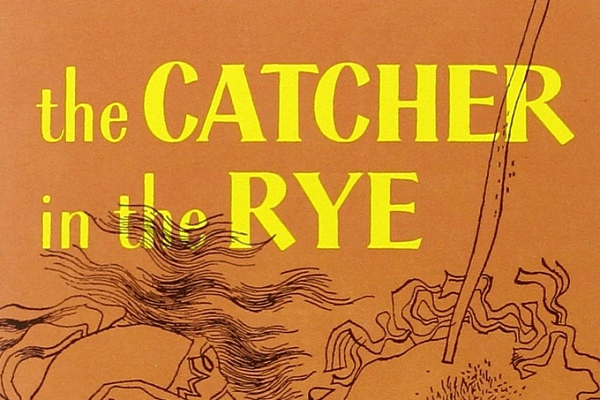
While he's home, Holden calls Mr. Antolini, his favorite teacher who used to show English at Elkton Slopes, Holden's previous school. Yet again, Mr. Antolini is upset to hear that Holden has been expelled from school, yet he advises him to come over immediately, assuming he needs it. Before Holden leaves, he gives Phoebe his red hunting cap and slips away from the condo, advancing toward Mr. Antolini. At the point when he shows up, Mr. and Mrs. Antolini welcome him affectionately, and Mr. Antolini sits with him in the lounge room to discuss his life. As they examine his future, Holden starts to feel very wiped out; however, he attempts to tune in as Mr. Antolini cautions him that he's set out toward a "horrendous fall" and attempts to persuade him to be less unbending and critical. Holden listens yet is excessively worn out to ingest what Mr. Antolini is telling him, so Mr. Antolini sets up a place for him to rest on the loveseat. Holden unexpectedly awakens and feels Mr. Antolini's hand stroking his head. Imagining that Mr. Antolini is following through with something "perverted," he leaves. Holden says farewell to Phoebe before leaving West after resting for a few hours in Grand Central Station. To do this, he visits her school and writes a note for an administration to pass on to Phoebe, explaining that he will meet her at the Museum of Art to say farewell before leaving. After delivering this message, he goes to the museum and shares a sweet moment with two little boys as he teaches them about the mummies in the Egyptian department. However, his lack of sleep and food (as well as his heavy alcohol consumption the night before) begins to catch up with him, and he drops out of the restroom. Thankfully, he awakens and returns to the lobby to discover Phoebe, who has arrived with huge luggage. She informs him that she will accompany him, forcing him to realize how ridiculous his idea is. Instead, he takes Phoebe to the zoo and watches her ride a carousel. She returns his hunting cap between rides, and he agrees not to travel West. Holden's story shifts back to the rest home, where he's going through analysis. He says he doesn't realize whether he'll put forth a concentrated effort when he returns to school. He wishes he hadn't recounted such countless individuals in the narrative of his removal from Pencey since doing so has made him miss individuals he discussed. Themes1. Innocence Vs. PhoninessIf you needed to pick a single word to address The Catcher in the Rye, it would be "phony," Holden Caufield's affront of decision and a word he uses to depict a large portion of individuals he meets and a significant part of the world he experiences. For Holden, the word suggests stratagem, an absence of genuineness ? pretension. He sees fakeness as an indication of growing up, as though adulthoods were an infection and fakery its clearest side effect. He has snapshots of confidence in more youthful individuals; however, he constantly denounces every one of the grown-ups as phonies. 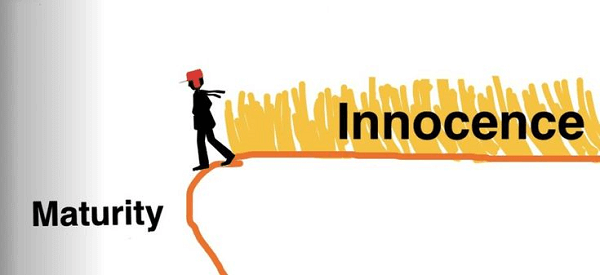
The value Holden places on innocence, on being untouched, is the polar opposite of this. Holden sees his younger brothers deserving sympathy and respect, which he attributes to their innocence. Phoebe, his younger sister, is his ideal?she is intelligent and wise, creative and headstrong, but she is oblivious to the awful things that Holden has acquired over the last six years (most notably about sex, which Holden plans to keep hidden from Phoebe). Holden is troubled by his dead brother, Allie, since Allie will always be thus innocent, despite his death. Some portion of Holden's torment is his fakeness. While he doesn't deliberately prosecute himself, he takes part in numerous phony ways of behaving that he would hate if he somehow happened to notice them in himself. Unexpectedly, this keeps him from being honest, which clarifies Holden's self-hatred and psychological sickness to some degree. 2. AlienationThroughout the story, Holden feels lonely and alienated. There are signs that he is narrating his narrative from a hospital where he is recovering from his breakdown, and his exploits throughout the novel are continuously centered on creating some form of human connection. Holden continuously sabotages himself. He feels lonely and alienated at school, yet one of the first things he tells us is that he is not going to the football game that everyone else is going to. He makes plans to visit people, then insults and drives them away. Holden isolates himself to shield himself from scorn and rejection, yet his loneliness drives him to keep trying to connect. Holden's sense of bewilderment and terror grows due to his lack of meaningful connection to the world around him. Because the reader is confined to Holden's point of view, the horrible sensation of being completely cut off from everything, of everything in the world making no sense, becomes a visceral component of reading the work. 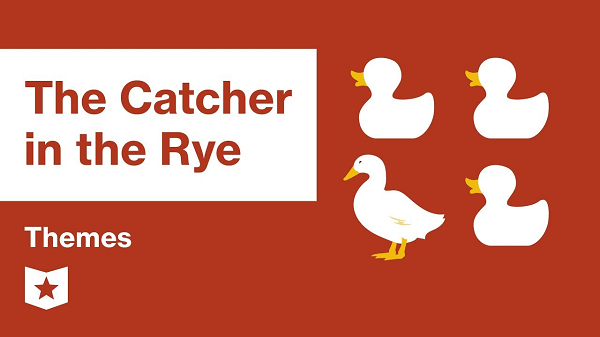
3. DeathThe thread that goes through the tale is death. For Holden, death is abstract; he isn't terrified of the physical aspects of death since, at 16, he can't completely comprehend it. What Holden fears about death is the transformation it brings. Holden always desires for things to remain the same and to return to a happier period when Allie is alive. Holden is frightened of more change?more death?especially concerning Phoebe. Symbols
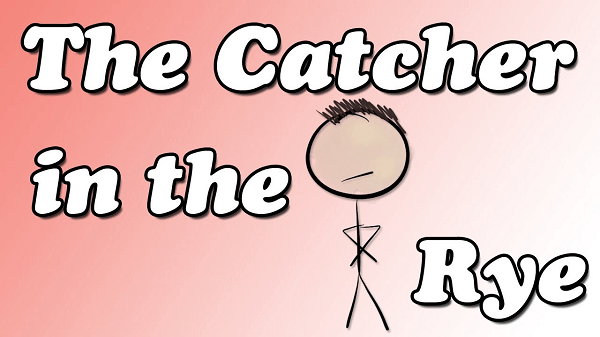
Literary Devices
Next TopicThe Cold Within Summary
|
 For Videos Join Our Youtube Channel: Join Now
For Videos Join Our Youtube Channel: Join Now
Feedback
- Send your Feedback to [email protected]
Help Others, Please Share









